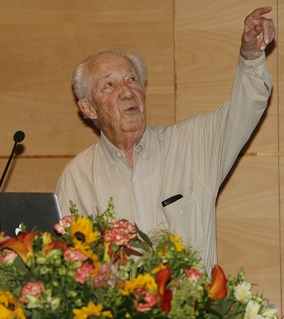A Quote by Baruj Benacerraf
Some of the most significant advances in molecular biology have relied upon the methodology of genetics. The same statement may be made concerning our understanding of immunological phenomena.
Related Quotes
The idea would be in my mind - and I know it sounds strange - is that the most important advances in medicine would be made not by new knowledge in molecular biology, because that's exceeding what we can even use. It'll be made by mathematicians, physicists, computer scientists, figuring out a way to get all that information together.
The second half of the 20th century was a golden age of molecular biology, and it was one of the golden ages of the history of science. Molecular biology was so successful and made such a powerful alliance with the medical scientists that the two together just flourished. And they continue to flourish.
In thermodynamics as well as in other branches of molecular physics , the laws of phenomena have to a certain extent been anticipated, and their investigation facilitated, by the aid of hypotheses as to occult molecular structures and motions with which such phenomena are assumed to be connected. The hypothesis which has answered that purpose in the case of thermodynamics, is called that of "molecular vortices," or otherwise, the "centrifugal theory of elasticity.
It is now widely realized that nearly all the 'classical' problems of molecular biology have either been solved or will be solved in the next decade. The entry of large numbers of American and other biochemists into the field will ensure that all the chemical details of replication and transcription will be elucidated. Because of this, I have long felt that the future of molecular biology lies in the extension of research to other fields of biology, notably development and the nervous system.
Molecular genetics can show off some surprising relationships like, for example, the close relationship of whales to hippopotamuses, which I think nobody ever guessed until molecular data was looked at. The closest relatives of whales are hippopotamuses, even closer than any other cloven-hoofed animals.
Young people - with their dynamism, their energy and their inherent understanding of our interconnected world - have much to teach us. Increased educational attainment, advances in technology and the spread of information have made this generation the best educated, most connected and most informed in history


































